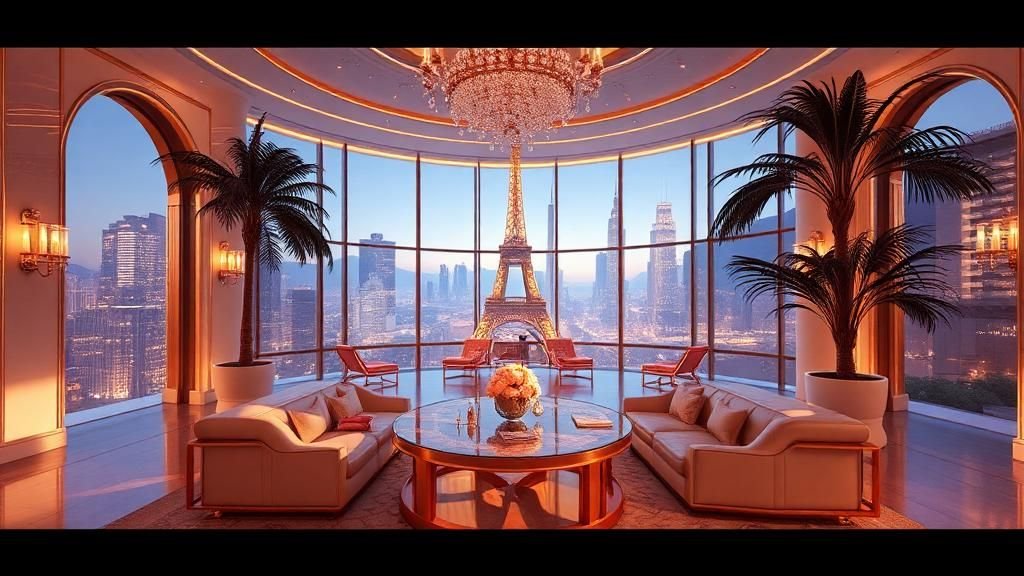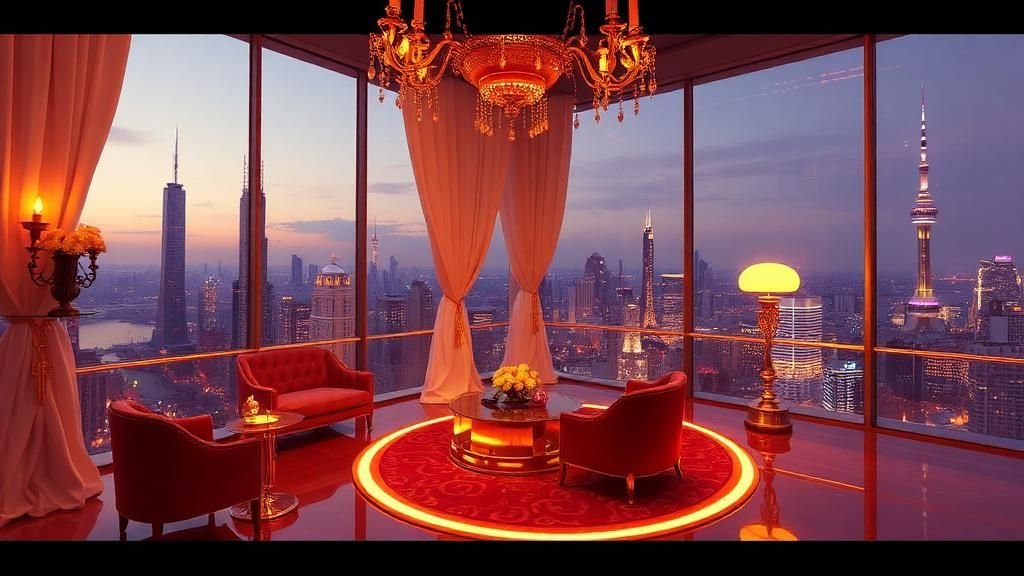Understanding the Metaverse: Definition and Significance
Luxury in the Metaverse: The metaverse represents a collective virtual shared space where physical and digital realities converge through technologies like virtual reality (VR), augmented reality (AR), and blockchain. Evolving from early online gaming environments, it now allows users to interact, create, and transact in immersive three-dimensional universes. This growth has unlocked new possibilities for communication, collaboration, and commerce, enabling experiences beyond traditional online interactions.
Origins and Historical Context
The concept of the metaverse originates from sci-fi literature, particularly Neal Stephenson’s Snow Crash, envisioning a virtual world intertwined with reality. Over the late 20th and early 21st centuries, online gaming, social media, and virtual platforms shaped the modern metaverse. Today, it serves as both a digital playground and a functional space for meetings, social gatherings, and commerce, reflecting its integration into contemporary culture.

Significance for Modern Society
The metaverse holds transformative potential across multiple sectors, especially for luxury goods and services. By venturing into digital spaces, brands create immersive experiences that connect with consumers in unique ways. Luxury brands leverage these platforms to strengthen presence, engage younger audiences, and offer personalized interactions. This digital renaissance signals a shift in consumer engagement, redefining how luxury is marketed and experienced in a connected world.
The Rise of Luxury Brands in the Metaverse
Virtual Goods and Digital Experiences
Luxury brands entering the metaverse mark a significant evolution in high-end consumption. Virtual goods and experiences are increasingly designed to attract digital consumers who value exclusivity and innovation. Gucci, Burberry, and Prada, for instance, have pioneered digital fashion releases and interactive showcases, appealing to a tech-savvy demographic.
Collaborations with Digital Creators
To enhance authenticity, brands partner with digital artists and influencers. These collaborations inject creativity and leverage established online communities, boosting brand visibility. Engaging with the digital culture helps luxury brands maintain desirability among younger consumers who prioritize unique experiences over traditional luxury practices.
Exclusive Events and Community Engagement
The metaverse allows hosting of virtual events, reinforcing rarity and exclusivity. These experiences sustain brand identity while keeping luxury offerings relevant in a fast-evolving digital landscape. By exploring the metaverse strategically, brands demonstrate adaptability and innovation, essential for maintaining status in competitive markets.
Consumer Behavior and Perception of Luxury in Virtual Spaces
Status Signaling in Digital Environments
Consumer behavior in the metaverse reflects an emphasis on social signaling. Users display virtual possessions as markers of wealth and exclusivity, mirroring traditional luxury consumption but with added digital personalization. This creates new avenues for expressing individuality and engaging in status-driven interactions.

Community Belonging and Social Identity
Ownership of virtual luxury items fosters community belonging. Exclusive digital assets signal membership within elite groups, satisfying psychological needs for affiliation. The metaverse not only enhances luxury experiences but also enables social connections based on shared values and interests.
Psychological Dimensions of Virtual Luxury
Luxury in the metaverse depends on visual and interactive stimuli rather than tactile experiences. Brands must adapt strategies to ensure digital offerings resonate meaningfully, creating impactful experiences that maintain the prestige and allure associated with luxury consumption.
The Future of Luxury in the Metaverse
Opportunities and Sustainability Challenges
Luxury in the metaverse presents both exciting opportunities and potential risks. Brands must create sustainable digital ecosystems while mitigating environmental impacts. Consumers increasingly value ecological responsibility, prompting brands to minimize digital footprints while innovating within virtual spaces.
Cryptocurrency and Transactional Volatility
Fluctuating cryptocurrency values pose challenges for luxury transactions. Brands accepting digital currencies need strategies to maintain affordability and confidence. Stablecoins or secure financial frameworks can provide reliability, fostering trust in the virtual luxury marketplace.

Technological Innovation and Immersive Experiences
Advances in VR and AR are essential for enriching the luxury metaverse experience. Immersive environments allow consumers to interact with products digitally before purchasing. Brands must remain agile, creating interactive narratives that engage audiences and ensure relevance as digital behaviors evolve.
Defining the Longevity of Luxury in Digital Realms
The collaboration between technology and luxury will shape the sustainability of the metaverse. Whether it flourishes as a permanent ecosystem or fades as a passing trend depends on adaptability, innovation, and consumer engagement. The future of luxury in the metaverse lies in balancing exclusivity, experience, and digital sophistication.
